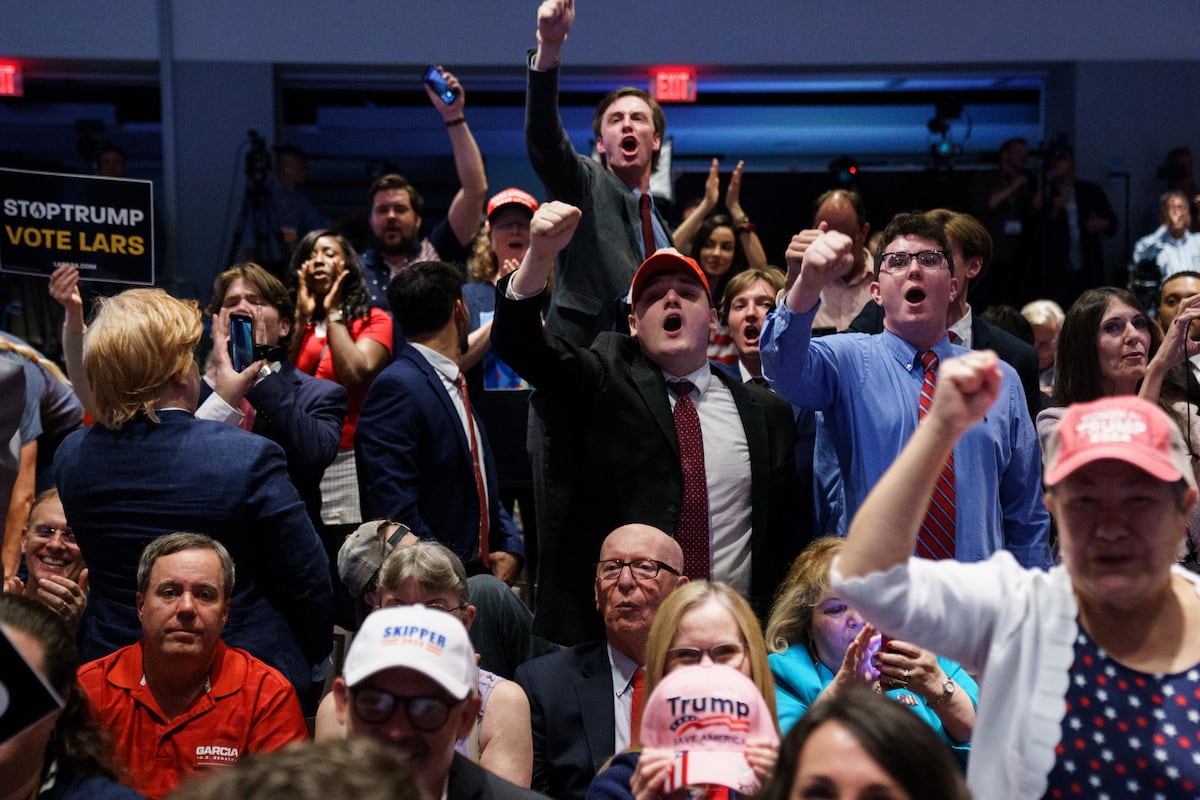Donald Trump, the virtual Republican candidate for the upcoming November presidential election, faced a notably mixed audience at the Libertarian Party convention in Washington D.C. this past Saturday. Trump's speech was met with a polarity of reactions, amidst a convention themed 'Become Ungovernable', with many attendees vehemently criticizing his administration's handling of the pandemic, the federal deficit, and his perceived allegiance to pharmaceutical companies through vaccine development.
The Libertarian Party, known for prioritizing individual freedoms and small government, will elect its candidate for the November presidential election on Sunday. The decision to invite Trump incited division within the party. Independent candidate Robert F. Kennedy Jr., known for his anti-vaccine stance, preceded Trump with a speech denouncing Trump's pandemic policies, further setting the stage for a contentious reception.
As Trump took the stage, he was greeted with a mix of boos and applause from the audience, with visible supporters donning caps and T-shirts bearing his slogans. Attempting to address the crowd with a familiar bravado, he remarked, 'If I wasn’t a libertarian before, I sure am now,' referencing his four criminal indictments. His attempt to align with the libertarian values of defending freedom was met with skepticism and increased boos.
In an effort to find common ground, Trump harshly criticized President Joe Biden, labeling him a 'corrupt and incompetent tyrant' and the 'worst president in American history.' His remarks elicited mixed responses, with some attendees shouting in agreement and others firing back with accusations. Undeterred, Trump called for an alliance with the Libertarian Party to prevent Biden's re-election, suggesting that collaboration was essential for preserving freedom in the country.
Trump also promised to commute the life sentence of Ross Ulbricht, founder of the Silk Road website, which was met with loud applause, a rare moment of unified support during his speech. However, his promise to include a libertarian in his government was met with disbelief and more boos, highlighting the tension within the audience.
Despite the tumultuous reception, Trump leads the polls for the upcoming election, though both he and Biden are widely unpopular among the general electorate. The role of third-party candidates, including the Libertarian nominee and Kennedy, could prove critical in the electoral outcome, especially in tightly contested swing states.
The Libertarian Party, which garnered 1.18% of the vote in 2020 with Jo Jorgensen as its candidate, aims to increase its influence in this election. Many in attendance carried signs demanding the release of Ross Ulbricht, reflecting a shared concern among libertarians about government overreach and judicial excess.
Trump's campaign emphasized that his appearance at the convention was part of a broader strategy to engage potential supporters beyond his Republican base. This approach included outreach at events like his rally in the Bronx. The convention reflected the deep-seated divisions within the political landscape, with libertarians eyeing support from disaffected Republicans and left-leaning voters critical of government intervention.
- The Libertarian Party convention serves as a critical juncture for Trump and independent candidates, highlighting the fractured nature of the American political landscape. As the Libertarian Party positions itself as a potential alternative for voters disillusioned with the two major parties, the convention's proceedings and outcomes will be closely watched.
- Michael Rectenwald, a key contender for the Libertarian presidential nomination, expressed skepticism about Trump’s alignment with libertarian values, reflecting the broader ambivalence within the party. Peter Goettler of the Cato Institute further echoed this sentiment, suggesting Trump's presence contradicted core libertarian principles.






